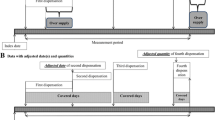Abstract
Background: Patient adherence affects treatment efficacy, and surprisingly, adherence is frequently associated with reductions in mortality for those receiving placebo.Methods: This study considers the role of trial adherence for men (N = 12,338) in the Multiple Risk Factor Intervention Trial (MRFIT), a prospective study of 9-year follow-up mortality following randomization to Special Intervention (SI) or Usual Care (UC). Annual visit attendance rates were used as a measure of adherence.Results: A significant Adherence x Group Assignment interaction (p = .002) revealed that SI significantly reduced cardiovascular disease (CVD) mortality for highly adherent participants, RR = .91 (95% confidence interval [CI] = .84–.99) but significantly increased CVD mortality for poorly adherent participants, RR = 1.28 (95% CI = 1.05–1.57) when compared to UC. These associations remained after controlling for baseline characteristics (e.g., income), reported illness, or occurrence of a nonfatal CVD event during the trial. The beneficial effect of SI among the adherent participants was partly due to reduced smoking and diastolic blood pressure levels during the trial.Conclusions: SI significantly reduced the risk of CVD mortality for participants adherent with the MRFIT, and this effect was accounted for by positive changes in CVD risk factors. These findings suggest a method for evaluating treatment efficacy in subgroups determined by patient responses (e.g., adherence to annual assessment visits) to the treatment program after randomization.
Similar content being viewed by others
References
Pizzo PA, Robichaud KJ, Edwards BK, et al.: Oral antibiotic prophylaxis in patients with cancer: a double-blind randomized placebo-controlled trial.Journal of Pediatrics. 1983,102:125–133.
Fuller R, Roth H, Long S: Compliance with disulfiram treatment of alcoholism.Journal of Chronic Diseases. 1983,36:161–170.
Horwitz RI, Viscoli CM, Berkman L, et al: Treatment adherence and risk of death after a myocardial infarction.Lancet. 1990,336:542–545.
Lipid Research Clinics Program: The lipid research clinics coronary primary prevention trial results. II. The relationship of reduction in incidence of coronary heart disease to cholesterol lowering.Journal of the American Medical Association. 1984,251:365–374.
Horwitz RI, Horwitz SM: Adherence to treatment and health outcomes.Archives of Internal Medicine. 1993,153:1863–1868.
Coronary Drug Project Research Group: Influence of adherence to treatment and response of cholesterol on mortality in the Coronary Drug Project.New England Journal of Medicine. 1980,303:1038–1041.
Baron RM, Kenny DA: The moderator-mediator variable distinction in social psychology research: Conceptual, strategic, and statistical considerations.Journal of Personality and Social Psychology. 1986,51:1173–1182.
Multiple Risk Factor Intervention Trial Research Group: Statistical design considerations in the NHLI Multiple Risk Factor Intervention Trial.Journal of Chronic Diseases. 1977,30:261–275.
Sherwin R, Kaelber CT, Kezdi P, Kjelsberg MO, Thomas Jr. HE: The Multiple Risk Factor Intervention Trial (MRFIT), II:The development of the protocol.Preventive Medicine. 1981,10:402–425.
Neaton JD, Grimm Jr. RH, Cutler JA: Recruitment of participants for the Multiple Risk Factor Intervention Trial (MRFIT).Controlled Clinical Trials. 1987,8:41S-53S.
Benfari RC: Multiple Risk Factor Intervention Trial (MRFIT), III: The model for intervention.Preventive Medicine. 1981,10:426–442.
Caggiula AW, Christakis G, Farrand M, et al.: Multiple Risk Factor Intervention Trial (MRFIT), IV: Intervention on blood lipids.Preventive Medicine. 1981,10:443–475.
Multiple Risk Factor Intervention Trial Research Group: Multiple Risk Factor Intervention Trial: Risk factor changes and mortality results.Journal of the American Medical Association. 1982,248:1465–1477.
Multiple Risk Factor Intervention Trial Research Group: Baseline rest electrocardiographic abnormalities, antihypertensive treatment, and mortality in the Multiple Risk Factor Intervention Trial.American Journal of Cardiology. 1985,55:1–15.
Multiple Risk Factor Intervention Trial Research Group: Mortality after 16 years for participants randomized to the Multiple Risk Factor Intervention Trial.Circulation. 1996,94:946–951.
Wentworth D, Neaton J, Rasmussen W: An evaluation of the Social Security Administration Master Beneficiary Record File and the National Death Index in the ascertainment of vital status.American Journal of Public Health. 1983,73:1270–1274.
Wills TA, DuHamel K, Vaccaro D: Activity and mood temperament as predictors of adolescent substance use: Test of a self-regulation mediational model.Journal of Personality and Social Psychology. 1995,65:901–916.
Nirkko O, Lauroma M, Siltanen P, Tuominen H, Vanhala K: Psychological risk factors related to coronary heart disease: Prospective study among policemen in Helsinki.Acta Medica Scandanavia Supplement. 1982,660:137–146.
Rozanksi A, Blumenthal JA, Kaplan J: Impact of psychological factors on the pathogenesis of cardiovascular disease and implications for therapy.Circulation. 1999,99:2192–2217.
Hughes GH, Hymowitz N, Ockene JK, Simon N, Vogt TM: The Multiple Risk Factor Intervention Trial (MRFIT), V: Intervention on smoking.Preventive Medicine. 1981,10:476–500.
Cohen JD, Grimm RH, McFate Smith W: The Multiple Risk Factor Intervention Trial (MRFIT),V: Intervention on blood pressure.Preventive Medicine. 1981,10:501–518.
The Steering Committee of the Physician's Health Study Research Group. Preliminary report: Findings from the aspirin component of the ongoing physician's health study.New England Journal of Medicine. 1988,318:262–264.
Protocol for the Postmenopausal Estrogen/Progestin Interventions Trial (PEPI): Winston-Salem, NC: Bowman Gray School of Medicine, 1989.
Author information
Authors and Affiliations
Corresponding author
Additional information
This work was supported by National Institutes of Health Grant HL58867. We thank Lewis Kuller and Greg Grandits for their consultation on analytic strategy and manuscript preparation.
About this article
Cite this article
Gump, B.B., Matthews, K.A. Special intervention reduces CVD mortality for adherent participants in the multiple risk factor intervention trial. ann. behav. med. 26, 61–68 (2003). https://doi.org/10.1207/S15324796ABM2601_08
Issue Date:
DOI: https://doi.org/10.1207/S15324796ABM2601_08



